The Republic of Korea now has a new ambassador from the Republic of Azerbaijan who was accredited to Korea in August 2022. The new ambassador is H.E. Ramin Hasanov.
Prior to this appointment, Ambassador Hasanov has served as the Ambassador Extraordinary and Plenipotentiary of the Republic of Azerbaijan to the Federal Republic of Germany.
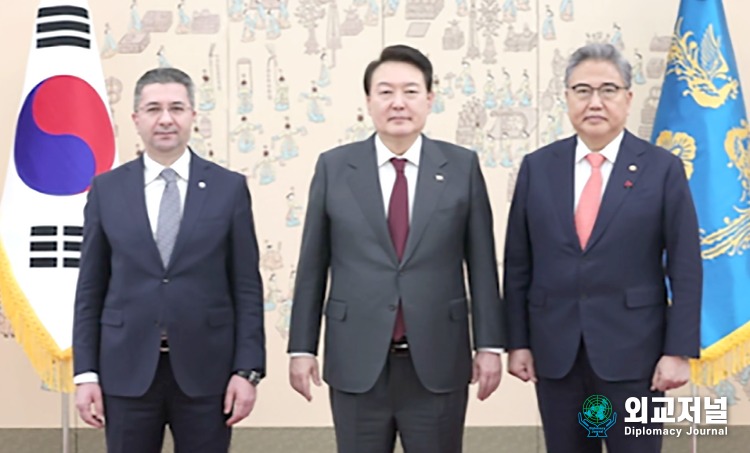
Overall, the interlocutor possesses almost 24 years of professional work experience and has started his diplomatic career at the system of the Ministry of Foreign Affairs of Azerbaijan.
Ambassador Hasanov held various senior-level positions both at the Ministry and various diplomatic missions of Azerbaijan abroad. As regard to his academic background, he holds bachelor’s and master’s degrees in international law and international relations, both earned at the Baku State
University. Details of the interview follow:
Question: How would you summarize the overall outcomes of 2022 for Azerbaijan?
Answer: The year of 2022 was very successful for Azerbaijan. Our government has continued to successfully implement “Azerbaijan 2030: National Priorities for Socio-Economic Development” and “Socioeco-nomic Development Strategy of the Republic of Azerbaijan for 2022-2026”, to ensure country’s smooth transition to more diversified, competitive, innovative, sustainable, resilient, as well as technology, intellectual property and knowledge-based economy.
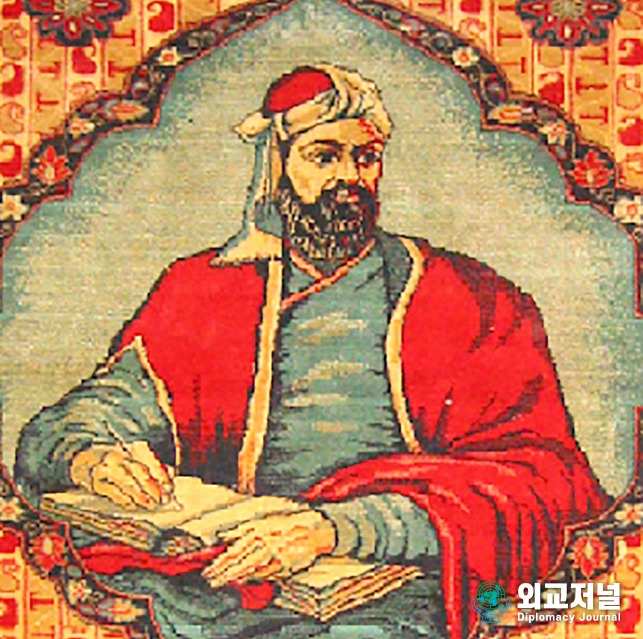
Despite the global economic crisis, the last year, Azerbaijani economy grew by about 5%, with the non-oil sector growth recorded at more than 9%. This is a historic achievement for our country in the post- COVID-19 period.
In 2022, Azerbaijan hosted numerous prestigious international events. For instance, on 30 June – 1 July 2022, as the chair country, the Republic of Azerbaijan hosted the Baku Conference of the Non-Aligned Movement (NAM) Parliamentary Network, established upon the initiative of Azerbaijan. Another important event was the 8th Advisory Council Ministerial Meeting of the Southern Gas Corridor held in Baku on 4 February 2022 in Baku.
Azerbaijan. In this context, wideranging celebrations were held both in Azerbaijan and abroad, including in Korea, to mark the 270th Anniversary of Shusha.
On 18 July 2022, the Memorandum of Understanding (MoU) on strategic partnership in the field of energy was signed between Azerbaijan and the European Union. This MoU envisages doubling the capacity of the Southern Gas Corridor (SGC) by 2027 and substantially increasing Azerbaijan’s natural gas exports to European markets.
On 17 De c ember 2 022 , Azerbaijan with its European partners launched yet another new megaproject in the field of green energy. Black Sea Submarine Power Cable project will allow Azerbaijan to play a more significant role in ensuring European energy security. This project opens opportunities for Azerbaijan to export extra volumes of electricity generated from projected off-shore wind farms to the European markets.
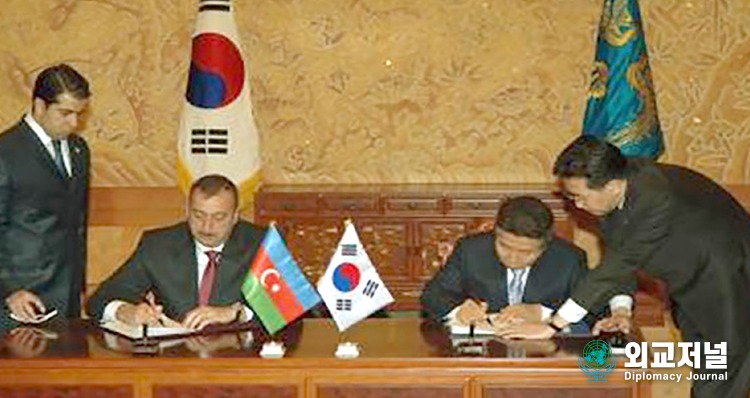
On the political level, Azerbaijan continued the cooperation with the countries of the region and beyond, as well as provided humanitarian, financial and COVID-19-related aid to the foreign countries in need, as an obvious example of the international solidarity.
Q: What is the situation between Azerbaijan and Armenia?
A: Last November, the Azerbaijani people proudly celebrated the 2nd anniversary of the liberation of Azerbaijani territories from Armenian occupation. Two years ago, we put an end to the 30-year occupation of Azerbaijani lands, restored historical justice and international law. By doing that, Azerbaijan also implemented itself the relevant resolutions of the UN Security Council.
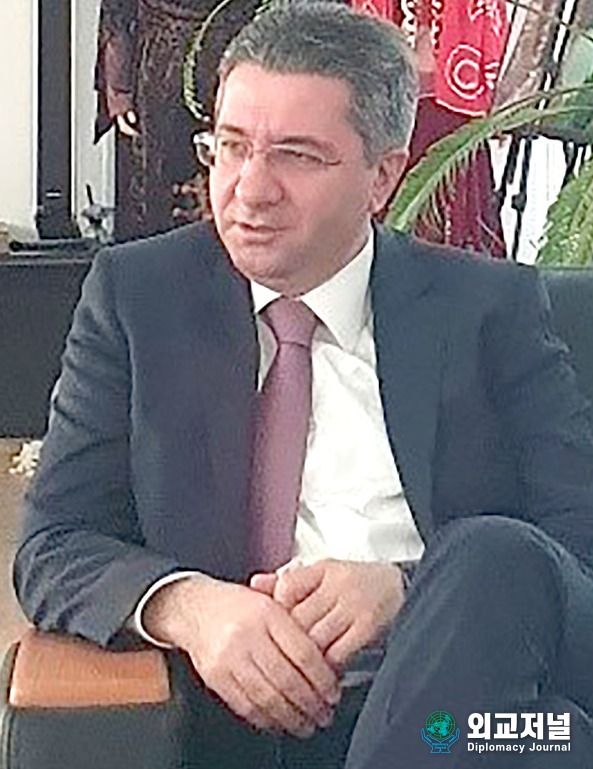
The Trilateral Statement signed on 10 November 2020 between Azerbaijan, Armenia and Russia has put an end to the conflict and set agreed parameters for establishing durable peace in the region. Now that the war is over and the conflict has been resolved, the priorities of Azerbaijan at the current post-conflict stage have been stated unambiguously, including at the highest political level. These are the soonest and effective post-conflict rehabilitation, reconstruction and reintegration and normalization of inter State relations.
Furthermore, to discuss among others the peace treaty, the leaders and ministers of foreign affairs of Azerbaijan and Armenia had several meetings in various formats, including with the mediations of the USA, Russia and the European Council.
Although two years have passed since the end of the Patriotic War, Armenia continues to commit military provocations on the state border. In the latest one, in September 2022, the Azerbaijani Armed Forces had to launch a resolute counter-offensive operation to repel yet another military provocation by Armenia.
Despite the war crimes, urbicide, culturicide and ecocide acts carried out by Armenia for almost 30 years, Azerbaijan is still committed to the peace talks and presented its relevant proposals to Armenian side. Currently, there are all the prequisites to sign a peace treaty with Armenia, which is possible based on the well-known principles proposed by Azerbaijan. However, Armenia still makes contradictory statements, demonstrates non-constructive position and deliberately hinders the peace process.
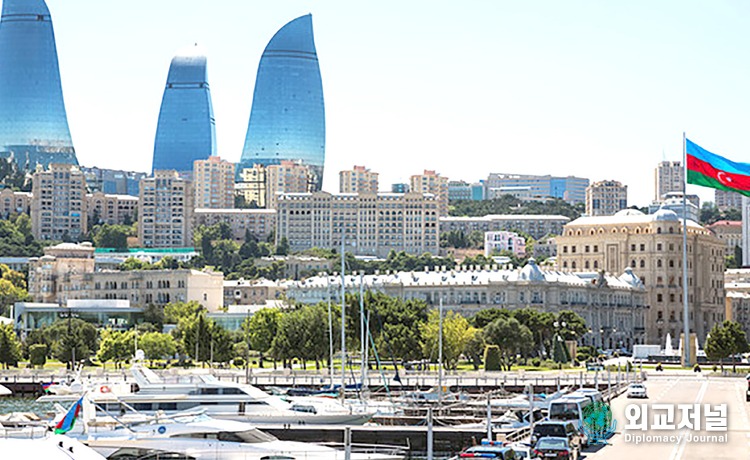
Q: What measures are being taken by the Government to develop the liberated territories?
A: As I mentioned above, in 2020, after 30 years of occupation of its internationally recognized territories, Azerbaijan managed to restore its territorial integrity. During the occupation period, the aggressors destroyed and looted everything that existed on and under those lands, from residential buildings to infrastructure, schools to hospitals, cultural monuments to religious sites, flora and fauna to mineral resources and precious metals.
Although the 30-year occupation is over, its severe consequences still exist. 9 cities and hundreds of villages of Azerbaijan have been wiped off the face of the earth by Armenia. Aghdam, once a large and prosperous city, has been destroyed to an extent that foreign experts call it the Hiroshima of the Caucasus. The Government of Azerbaijan has already initiated practical steps aiming at eliminating the consequences of the decades-old occupation of the territories of Azerbaijan by Armenia accompanied by massive destruction.
Azerbaijan is strongly interested in economic development of the liberated territories and, in this regard, Azerbaijan has launched the large-scale restoration and reconstruction projects in those territories.
These projects are based on the advanced technologies and are implemented through smart city and smart village concepts. First and foremost, the extensive construction activities have been implementing in Shusha city, cultural capital of Azerbaijan. In parallel, we have been building hospitals, schools and residential buildings in Aghdam, Fuzuli, Zangilan and Lachin.
The Azerbaijani Government has identified the transformation of the country’s Karabakh region into a green energy zone as a priority within the ongoing reconstruction and development projects in the liberated territories. The goal of the Azerbaijani government is to transform the region fully into a green energy zone by 2050, as well as reduce carbon dioxide emissions by 40%.
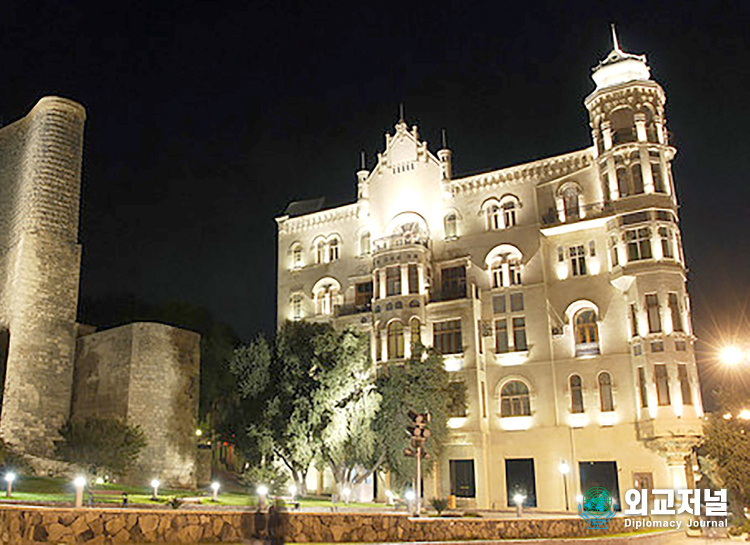
Priority sectors to be developed in the liberated territories include extractive industries, industry, tourism, transportation and logistics service, agriculture, including traditional viticulture and wine production.
According to the Decree of the President of the Republic of Azerbaijan related to the acceleration of economic and social welfare in the liberated territories, the following mechanisms are envisaged for entrepreneurs: tax benefits, social insurance and other incentives for entrepreneurs engaged in processing industry and service infrastructure; concessions on utility services (electricity, natural gas and water cns on preferential terms and etc.

